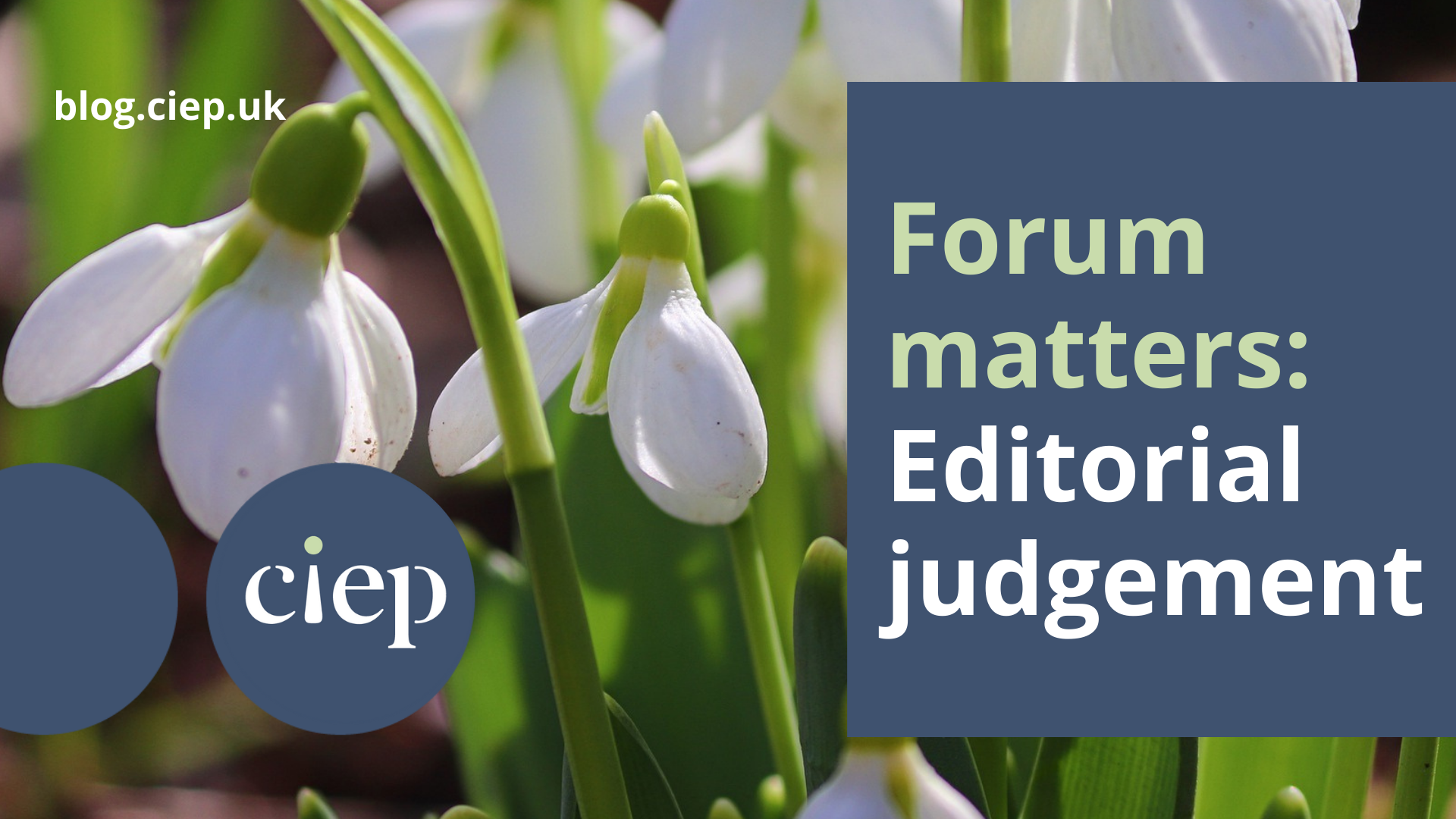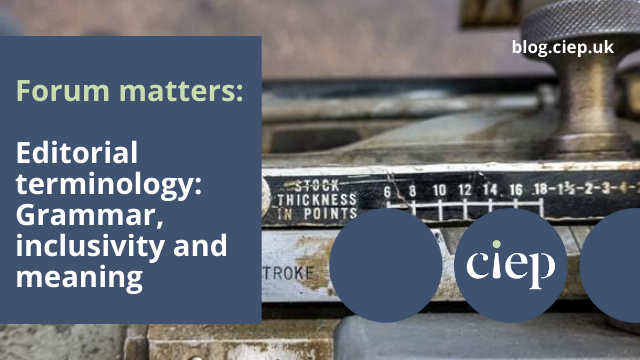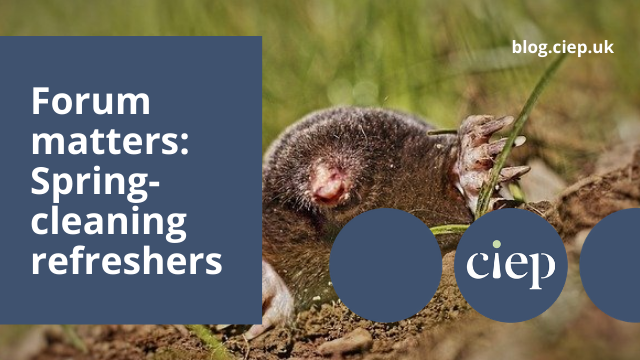This feature comes from the band of CIEP members who serve as forum moderators. You will only be able to access the posts if you’re a forum user and logged in. Find out how to register.
The CIEP forums are a wealth of information, but sometimes you need to know where to look. Joining a specialist forum can help you find other members who are in the same boat or who have encountered (and solved!) whichever problem you might be facing. In this article, we cover:
- How much fact-checking should we do on textbooks?
- Beyond the mechanics
- Digging deeper into the specialist forums
- Join a specialist forum
How much fact-checking should we do on textbooks?
On the SfEPLine forum, members discussed how much fact-checking should be done on textbooks during a proofread. Some said they are regularly asked to do it for education publishers, usually as a separate activity at second proof stage. Members might not feel comfortable fact-checking in a field in which they don’t have a specialism. It’s worth gauging the extent of the facts that need to be checked in order to give a fair quote that works within the client’s budget, and charging for the extra time you will need beyond a standard copyedit or proofread. This ties into an earlier thread about fact-checking that goes into a little more detail on what it requires.
Beyond the mechanics
Editors in any genre sometimes need to think beyond the style guide. We might need to consider the personal approach we’re taking to the job or to the client. A link to a helpful CIEP blog post about textbook publishing from an author’s perspective led to an interesting discussion of members’ experiences in editing textbooks and how they communicated with their clients, while a simple request for some suggested synonyms for some secondary school books turned into a thought-provoking and sensitive conversation about the nuances of language about religion.
Digging deeper into the specialist forums
Educational publishing is vast, and we have many members who work in the industry as proofreaders, copyeditors, developmental editors and project managers. We’ve even created several focused specialist forums where members can dig into these topics more deeply. There’s the general Education specialist forum as well as the English Language Teaching (ELT) forum and the MedSTEM forum (which focuses on medical, scientific, technical, engineering and mathematical textbooks). You can subscribe to as many of these as you like. For example, if you specialise in editing mathematics textbooks, you might want to subscribe to MedSTEM and Education.
If you’re not yet a member of the ELT or Education specialist forums and want to read the threads in the rest of this section, jump straight to ‘Join a specialist forum’ below. Once you’ve joined those groups, come back!
Editors working in ELT publishing will definitely benefit from this collection of resources in the ELT specialist forum. Others working in any area of educational publishing would probably enjoy the discussions about formatting answer keys to help dyslexic students and how many words per page are best for children’s educational books in the Education specialist forum.
More recently, the educational publishing landscape was drastically changed by the shift to hybrid learning in many countries, making this discussion about whether educational publishers consider home educators (also in the Education specialist forum) particularly useful.
Join a specialist forum
There’s no barrier to entry into the hidden specialist groups. Instead, they’re hidden from view to avoid overwhelming members on arrival. If you’re interested in a deeper exploration of a niche or subject related to editing, follow the step-by-step instructions on this page or get in touch with one of the forum moderators by emailing forums@ciep.uk. As well as location-based groups and the Education and ELT groups, we have other topic-based groups including Music, Fiction, Translation (Languages), Legal and more. And sometimes that’s where the real action is!
 About the CIEP
About the CIEP
The Chartered Institute of Editing and Proofreading (CIEP) is a non-profit body promoting excellence in English language editing. We set and demonstrate editorial standards, and we are a community, training hub and support network for editorial professionals – the people who work to make text accurate, clear and fit for purpose.
Find out more about:
Photo credits: header image by Susan Q Ying on Unsplash, woman carrying a pile of books by cottonbro studio on Pexels.
Posted by Eleanor Smith, blog assistant.
The views expressed here do not necessarily reflect those of the CIEP.

















